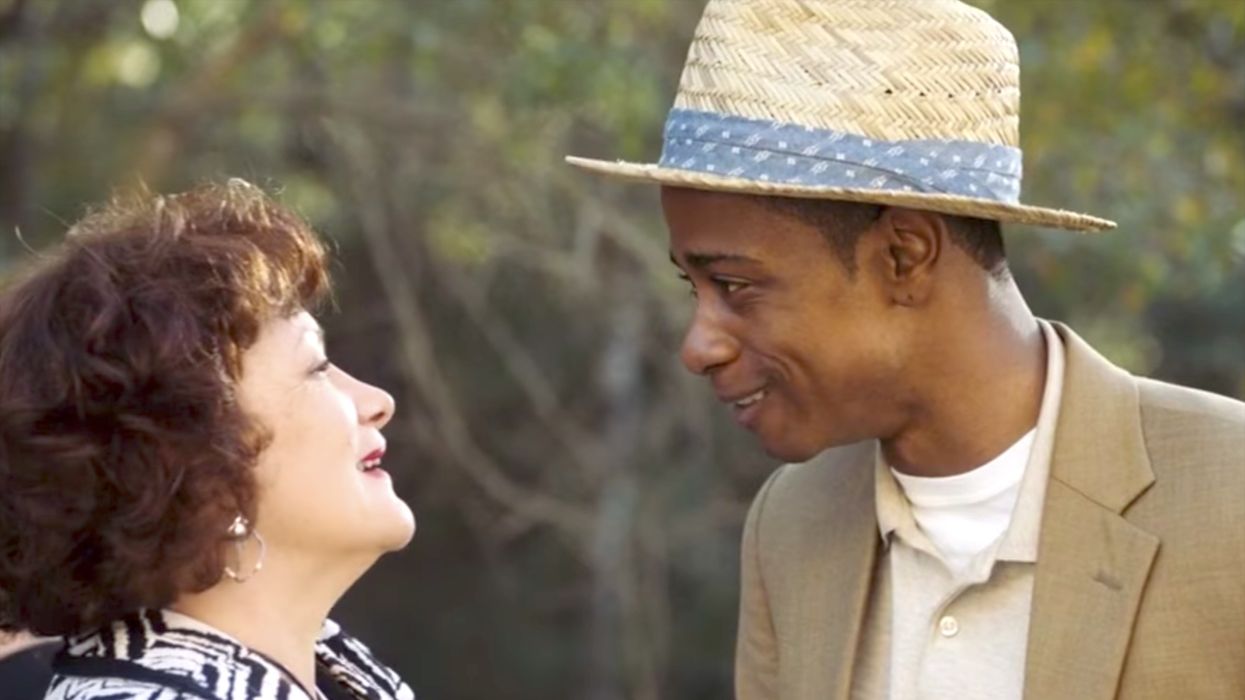Watch: Symbolism, Satire and Social Horror in 'Get Out'
This video essay uncovers the multiple layers of meaning hidden in one of this year's most acclaimed films, Jordan Peele's Get Out.

Get Out, the debut feature from Jordan Peele, is a horror film that's also a parody of horror films, and, at the same time, a trenchant satire/social commentary that's loaded with symbolism and cinematic references. This video essay from ScreenPrism looks at several of these aspects in the breakout hit of the year. (And, of course, THERE WILL BE SPOILERS.)
This is one of the most well-researched and thorough analyses of the film we've come across, and one of its most interesting arguments regards Get Out's meaning and its relation to the nature of movies themselves. The film's plot revolves around around Chris, an African-American photographer, who is brought by his white girlfriend to her ostensibly liberal, socially conscious parents' house. This would-be weekend getaway becomes a set-up to trap Chris and auction off his body, which will be taken over through surgery by the highest bidder. Chris is far from the first victim, and, in this case, the "winner" of the auction is a blind man, who wants to make use of Chris' eyes.
Crucially, the man is also an art dealer (who knows of Chris' work), "a person who sells his artistic tastes without really being able to see." With the use of Chris's eyes, he will be able to profit, not from Chris's eyes alone, but from his "artistic insight" as well as his perceived authenticity, for the content of his "gritty" images. Furthermore, just as Chris will, following the surgery, forever be a sort of "passenger" or audience within himself, the essay claims that the movie-goers themselves (and, by extension, anyone who consumes entertainment) is engaging in an activity that can be "passive, or hypnotic, if we allow our minds to be controlled by whatever images we're fed."
Ironically, in the film, it's the flash of the camera that wakes up the previous victims, and begins to wake Chris up to the reality of the situation he finds himself in. The essay hypothesizes that "Peele intends his movie be like this flash," although in this case, not "hypnotic entertainment that lulls into submission, but a jolt that wakes up to reality."
"Peele intends his movie be like this flash—not hypnotic entertainment that lulls into submission, but a jolt that wakes up to reality."
Get Out isn't quite a horror film, and much of this has to do with its tweaking of horror tropes and surfeit of social commentary, as well as the ending, which results in a crowd-pleasing victory, and escape, for Chris. This essay goes into ways in which the film resonates with two other horror films (and although the former far is more respected than the latter, both movies also have far more typical genre endings): Rosemary's Baby and The Stepford Wives. It's already widely known that an alternate ending, which Peele has not yet revealed, is to be included in the forthcoming DVD release, and the director has already revealed not just one, but two other alternate endings.
Neither of these conclusions (which were, suffice it say, far more depressing) was filmed, as the filmmaker felt they would have ruined the movie for audiences. And as it is, Get Out is pretty much a universally acknowledged success, if not outright triumph, and so it's probably safe to say Peele made the right decision. This essay shines a light on some of the reasons on why Get Out is one of the most socially trenchant, genre savvy, and purely cinematic (as well as genuinely, unnervingly entertaining and funny) films in recent memory.
Source: ScreenPrism










![Ethos, Pathos, Logos: 20 Effective Ways to Advertise [Infographic]](https://nofilmschool.com/media-library/ethos-pathos-logos-20-effective-ways-to-advertise-infographic.jpg?id=34064614&width=600&height=600&quality=90&coordinates=560%2C0%2C0%2C0)

